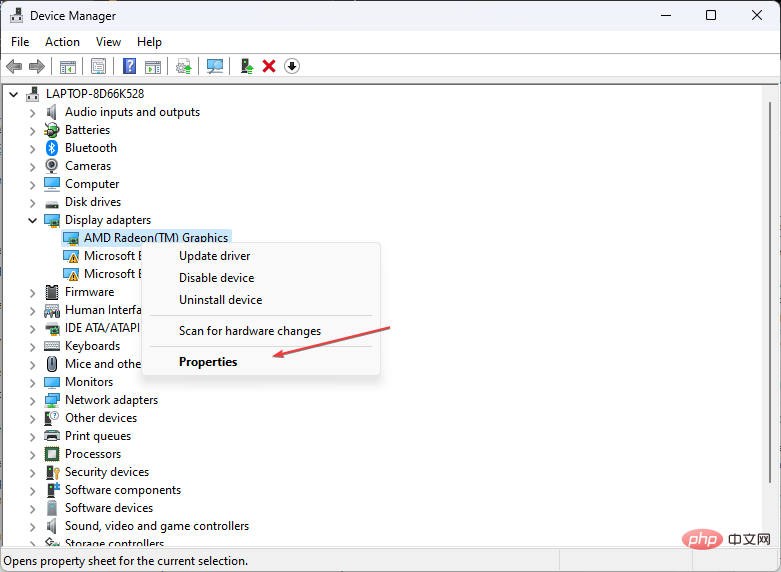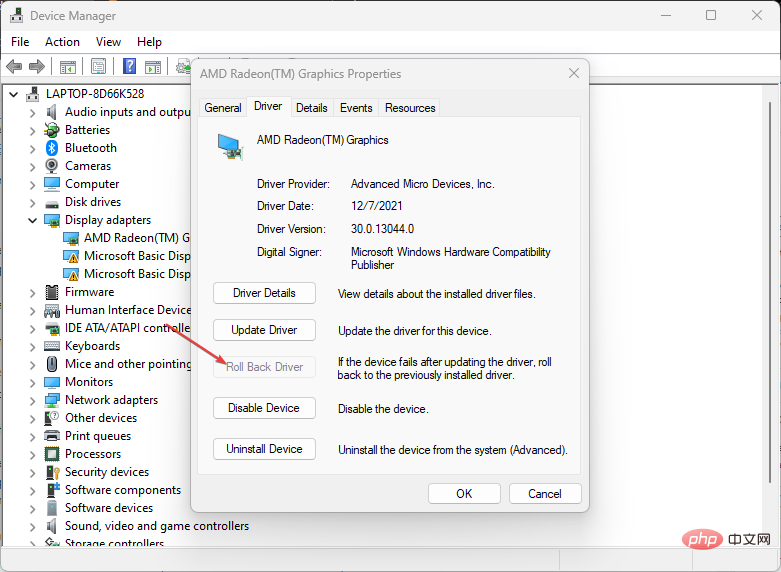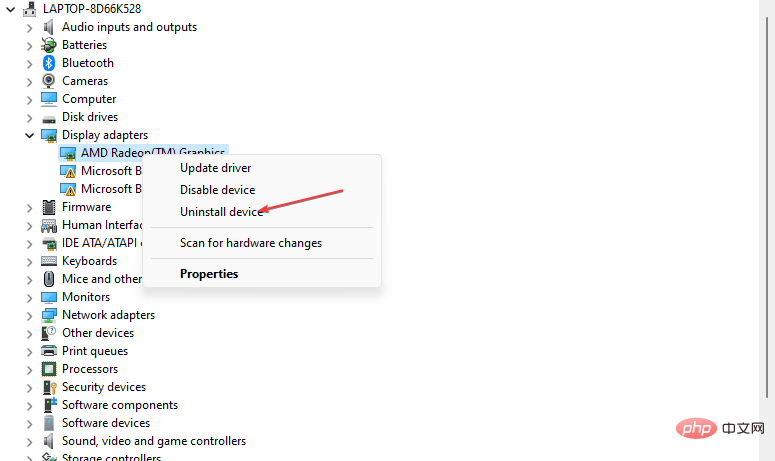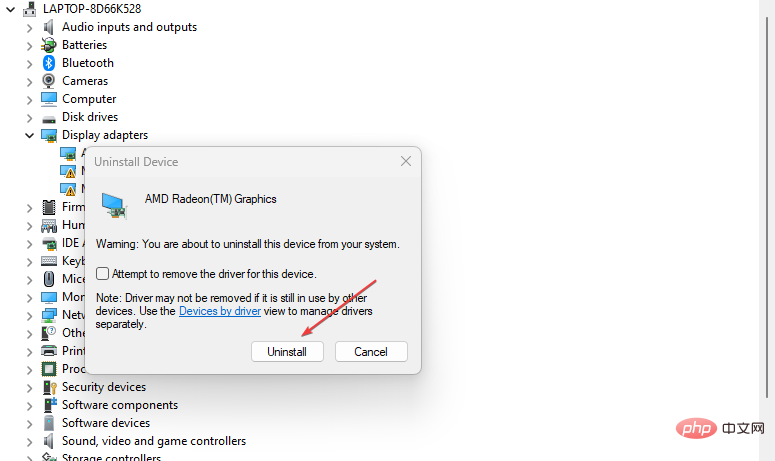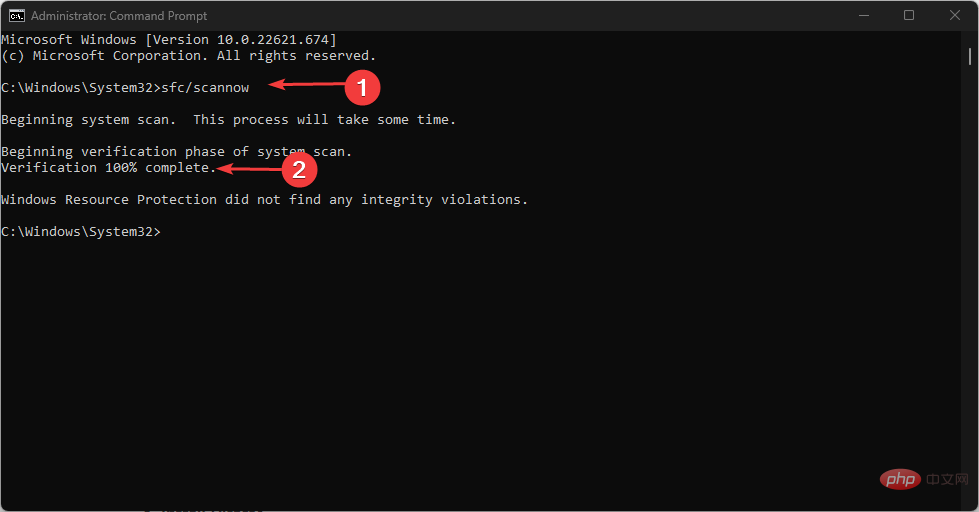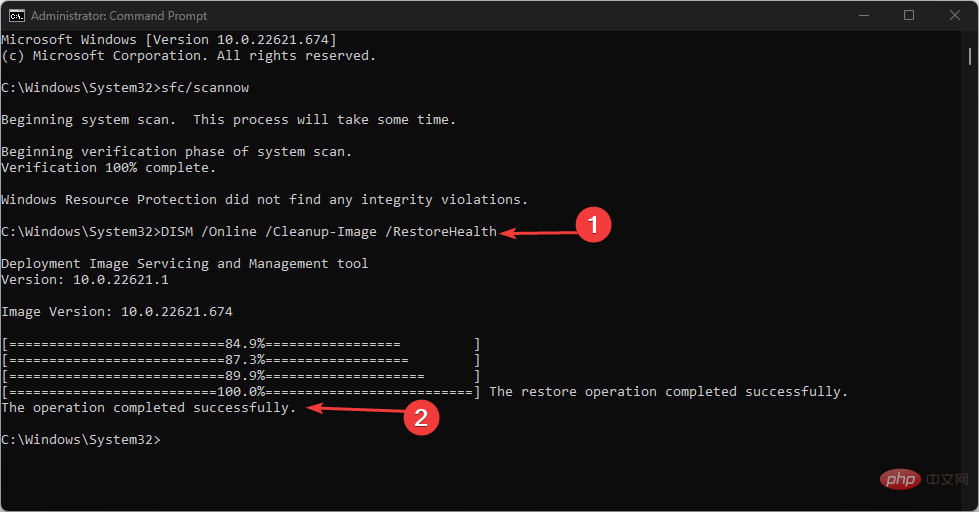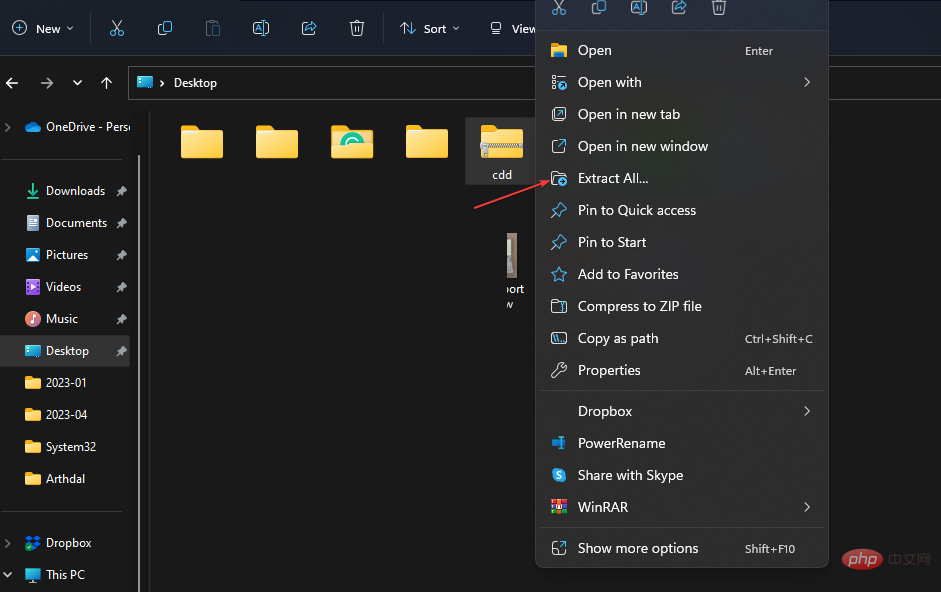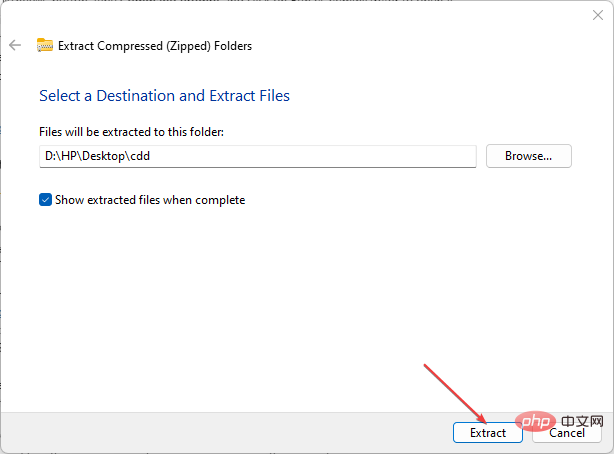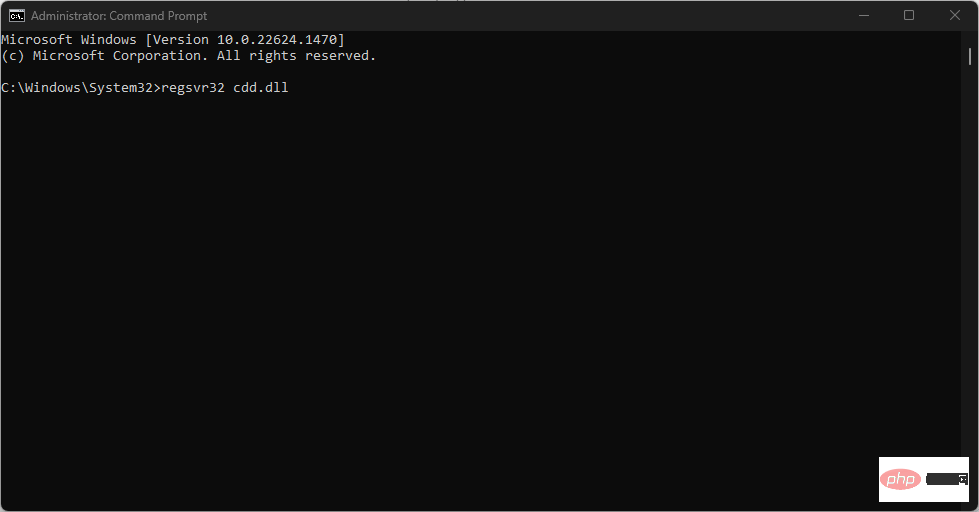What causes cdd.dll BSoD and how to fix it?
Cdd.dll is a key system file in Windows and is responsible for rendering graphics on the screen. However, people have reported system crashes due to cdd.dll BSoD errors. Therefore, we will explore the causes of cdd.dll BSoD error and provide solutions to fix it.
Alternatively, you can read our guide on the causes of BSoD and everything you need to know about it on your Windows PC.
What causes cdd.dll BSoD?
cdd.dll BSoD errors can be caused by a number of factors, some of which include:
- Malware Infection –System malware designed to damage or exploit any computer system and may corrupt system files, including cdd.dll, causing system instability and causing BSoD errors.
- Corrupted System Files – Corrupted or unreadable system files in the operating system may advance to cdd.dll BSoD errors.
- Registry Issues – Windows configuration settings, preferences, and options for Windows operating systems are stored hierarchically in the Windows Registry. Therefore, missing Windows registry can also lead to cdd.dll BSoD errors.
- Outdated or faulty drivers – A system driver is a type of utility software that allows hardware to communicate with the operating system. However, outdated or faulty drivers may conflict with your system's hardware, causing cdd.dll BSoD errors.
These factors may vary on various computers, depending on the situation. Anyway, we will discuss how to cdd.dll BSoD error.
How to fix cdd.dll BSoD?
Before proceeding with any advanced troubleshooting steps, complete the following:
- Close background apps running on your PC.
- Temporarily disable anti-virus software.
- Restart Windows in Safe Mode and check for cdd.dll BSoD errors.
If you cannot resolve this error, try the following steps:
1. Roll back the graphics driver
- Press the devmgmt and press to open Device Manager. WindowsEnter
- Double-click Display Adapters to expand it, right-click on the graphics driver and select Properties.

- Click the "Driver" tab at the top, click the "Rollback Driver" button, and give the Rollback reason.

- Select the "Yes" button to complete the process and restart your device.
Expert Tip:
Certain PC problems are difficult to solve, especially when Windows’ system files and repositories are missing or corrupted.
Be sure to use a specialized tool, such as Fortect, which will scan for corrupted files and replace them with new versions from their repository.
Rolling back the graphics card will restore the graphics card driver to the previous version, thereby resolving compatibility issues. You can read about how to roll back drivers on Windows PC.
2. Reinstall the graphics driver
- key, type Device Manager, and then press to open it. WindowsEnter
- Double-click Display Adapters to expand it, then right-click on the graphics driver. Select Uninstall Device from the context menu.

- Then, check the box to remove the driver software for this device previously set and click Uninstall.

- Close the device manager, restart the device and re-download the driver package.
Reinstalling drivers will fix outdated drivers and damage themselves. Feel free to check out our guide on manually downloading driver packages on your computer.
3. Run SFC/DISM scan
- Press the button, type Command Prompt, and click Run as administrator to open it. Windows
- If a Windows User Account Control prompt appears, click Yes.
- Type the following and press: Enter
<strong>sfc /scannow</strong> ##Then type this command and press:
##Then type this command and press: - Enter
Dism/Online/Cleanup-Image/RestoreHealth<strong></strong> Restart your PC and check if the error persists.
Restart your PC and check if the error persists.
Fortect to automatically repair damaged storage and use healthy parts as replacements.
4. Register cdd.dll fileNote that we do not recommend downloading from third-party websites. However, our experts have tested and proven these steps to be safe.- Download the cdd.dll file and open
- File Explorer. Right-click the file and click Extract All.
 Click Finished
Click Finished- Show Extracted Files and select Desktop as the location. Then, click Extract.
 Press and type
Press and type - cmd and click Run as administrator. Windows Select the "
- is" button on UAC to open the command prompt. Type the following at the command prompt and press:
- Enter
regsvr32 cdd.dll<strong></strong>
The above is the detailed content of What causes cdd.dll BSoD and how to fix it?. For more information, please follow other related articles on the PHP Chinese website!

Hot AI Tools

Undresser.AI Undress
AI-powered app for creating realistic nude photos

AI Clothes Remover
Online AI tool for removing clothes from photos.

Undress AI Tool
Undress images for free

Clothoff.io
AI clothes remover

Video Face Swap
Swap faces in any video effortlessly with our completely free AI face swap tool!

Hot Article

Hot Tools

Notepad++7.3.1
Easy-to-use and free code editor

SublimeText3 Chinese version
Chinese version, very easy to use

Zend Studio 13.0.1
Powerful PHP integrated development environment

Dreamweaver CS6
Visual web development tools

SublimeText3 Mac version
God-level code editing software (SublimeText3)

Hot Topics
 What is the reason why PS keeps showing loading?
Apr 06, 2025 pm 06:39 PM
What is the reason why PS keeps showing loading?
Apr 06, 2025 pm 06:39 PM
PS "Loading" problems are caused by resource access or processing problems: hard disk reading speed is slow or bad: Use CrystalDiskInfo to check the hard disk health and replace the problematic hard disk. Insufficient memory: Upgrade memory to meet PS's needs for high-resolution images and complex layer processing. Graphics card drivers are outdated or corrupted: Update the drivers to optimize communication between the PS and the graphics card. File paths are too long or file names have special characters: use short paths and avoid special characters. PS's own problem: Reinstall or repair the PS installer.
 How to speed up the loading speed of PS?
Apr 06, 2025 pm 06:27 PM
How to speed up the loading speed of PS?
Apr 06, 2025 pm 06:27 PM
Solving the problem of slow Photoshop startup requires a multi-pronged approach, including: upgrading hardware (memory, solid-state drive, CPU); uninstalling outdated or incompatible plug-ins; cleaning up system garbage and excessive background programs regularly; closing irrelevant programs with caution; avoiding opening a large number of files during startup.
 How to solve the problem of loading when PS is always showing that it is loading?
Apr 06, 2025 pm 06:30 PM
How to solve the problem of loading when PS is always showing that it is loading?
Apr 06, 2025 pm 06:30 PM
PS card is "Loading"? Solutions include: checking the computer configuration (memory, hard disk, processor), cleaning hard disk fragmentation, updating the graphics card driver, adjusting PS settings, reinstalling PS, and developing good programming habits.
 Is slow PS loading related to computer configuration?
Apr 06, 2025 pm 06:24 PM
Is slow PS loading related to computer configuration?
Apr 06, 2025 pm 06:24 PM
The reason for slow PS loading is the combined impact of hardware (CPU, memory, hard disk, graphics card) and software (system, background program). Solutions include: upgrading hardware (especially replacing solid-state drives), optimizing software (cleaning up system garbage, updating drivers, checking PS settings), and processing PS files. Regular computer maintenance can also help improve PS running speed.
 How to solve the problem of loading when the PS opens the file?
Apr 06, 2025 pm 06:33 PM
How to solve the problem of loading when the PS opens the file?
Apr 06, 2025 pm 06:33 PM
"Loading" stuttering occurs when opening a file on PS. The reasons may include: too large or corrupted file, insufficient memory, slow hard disk speed, graphics card driver problems, PS version or plug-in conflicts. The solutions are: check file size and integrity, increase memory, upgrade hard disk, update graphics card driver, uninstall or disable suspicious plug-ins, and reinstall PS. This problem can be effectively solved by gradually checking and making good use of PS performance settings and developing good file management habits.
 Is PS slow loading related to other programs that are running?
Apr 06, 2025 pm 06:03 PM
Is PS slow loading related to other programs that are running?
Apr 06, 2025 pm 06:03 PM
The secrets to mastering Office software include: understanding different versions and platforms, correctly installing and configuring, proficient in using the software interface, in-depth understanding of feature operations, application collaboration and sharing functions, utilizing templates and styles, mastering advanced skills, and solving common problems. In addition, you need to choose a version that suits your needs, make good use of templates and styles, develop backup habits, and learn shortcut keys and advanced techniques to improve efficiency.
 How to solve the problem of loading when PS is started?
Apr 06, 2025 pm 06:36 PM
How to solve the problem of loading when PS is started?
Apr 06, 2025 pm 06:36 PM
A PS stuck on "Loading" when booting can be caused by various reasons: Disable corrupt or conflicting plugins. Delete or rename a corrupted configuration file. Close unnecessary programs or upgrade memory to avoid insufficient memory. Upgrade to a solid-state drive to speed up hard drive reading. Reinstalling PS to repair corrupt system files or installation package issues. View error information during the startup process of error log analysis.
 How to use mysql after installation
Apr 08, 2025 am 11:48 AM
How to use mysql after installation
Apr 08, 2025 am 11:48 AM
The article introduces the operation of MySQL database. First, you need to install a MySQL client, such as MySQLWorkbench or command line client. 1. Use the mysql-uroot-p command to connect to the server and log in with the root account password; 2. Use CREATEDATABASE to create a database, and USE select a database; 3. Use CREATETABLE to create a table, define fields and data types; 4. Use INSERTINTO to insert data, query data, update data by UPDATE, and delete data by DELETE. Only by mastering these steps, learning to deal with common problems and optimizing database performance can you use MySQL efficiently.



